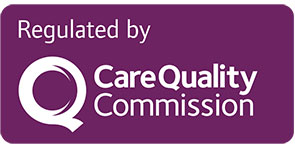Dr Colin Preece, Head of Mental Health writes…
Imagine you’re driving, and another car cuts you up. Your pulse spikes, your hands grip the wheel, and you feel the words forming before you even think. Or maybe you’re in a meeting, and a colleague dismisses your idea. You feel the urge to defend yourself immediately. It’s instinctual, right? We react.
But what if we didn’t?
What if we paused in that brief moment between the event and our response?
That fleeting space holds immense power. It’s the difference between a knee-jerk reaction and a thoughtful, composed response. It’s the moment that separates impulsivity from intentionality, stress from clarity, and reactivity from leadership.
Why Pausing Matters
We live in a world that often rewards quick decisions and immediate reactions. But a rapid response isn’t always the best in high-pressure situations. Leaders, professionals, and anyone navigating daily life can benefit from stretching the moment between what happens and what we do next.
Neurologically, the brain’s emotional center (the amygdala) is always on high alert, scanning for threats and preparing us to react. However, if we give it a chance, our more rational, thinking brain (the prefrontal cortex) can override these impulses. Pausing allows our brains to switch gears, moving from a reactive state to a thoughtful, controlled one.
How to Build the Power of Pause into Your Life
Pausing sounds simple in theory, but it’s easy to forget in the heat of the moment. The good news? Like any skill, it gets easier with practice. Here are four ways to strengthen your ability to pause and respond intentionally:
1. Start Small: Practice with Everyday Moments
If pausing before a heated argument or high-stakes conversation feels impossible, start with smaller, less emotionally charged situations. One of my coaching clients began practicing while driving—when someone cut her off, instead of honking or fuming, she took a deep breath and chose how to react.
Where can you practice your pause? A frustrating email? A slow barista? A long customer service call? These small moments add up, helping you build the muscle of self-control for more significant moments.
2. Use a Mental “STOP” Sign
If you feel emotions rising quickly, visualize a big red ‘STOP’ sign in your mind. This can serve as a mental trigger to slow down. Instead of letting emotions take over, imagine yourself physically stopping—just for a moment—to take a breath and reset.
A simple mantra can help: “Pause. Breathe. Choose.”
3. Write It Down (But Don’t Send It!)
Have you ever written an email or text in the heat of the moment and then (thankfully) deleted it? There’s power in putting your thoughts into words, even if you never send them.
Next time you feel reactive, grab a notepad or open a blank document. Write down exactly what you’re thinking and feeling. Then, step away for a few minutes. When you return, ask yourself:
- Is this how I want to be remembered in this moment?
- Is this the response that aligns with my values and goals?
You’ll often refine your response—or realise you don’t need to respond.
4. Set Intentions Before Important Moments
Anticipation is key. If you know you’re heading into a high-stakes situation—a big meeting, a difficult conversation, or a stressful event—set your response intention ahead of time.
Before stepping in, ask yourself:
- How do I want to show up?
- What kind of energy do I want to bring?
- What words and tone align with my best self?
By pre-loading your mindset, you create a buffer against knee-jerk reactions.
Transitions Matter: Becoming an Expert in the In-Between
Elite triathletes don’t just train for swimming, biking, and running—they train for the transitions between them. Those few seconds spent switching from one discipline to the next can make or break a race.
Life is full of these micro-transitions: the moment between hearing a difficult comment and responding, the pause before hitting “send” on an email, and the breath you take before giving feedback.By bringing awareness to these moments, we elevate our performance—not just in leadership and professional settings but also in our personal lives.
So, the next time you’re about to react, remember: the moment between two things is a thing. And that thing? That’s your power.









